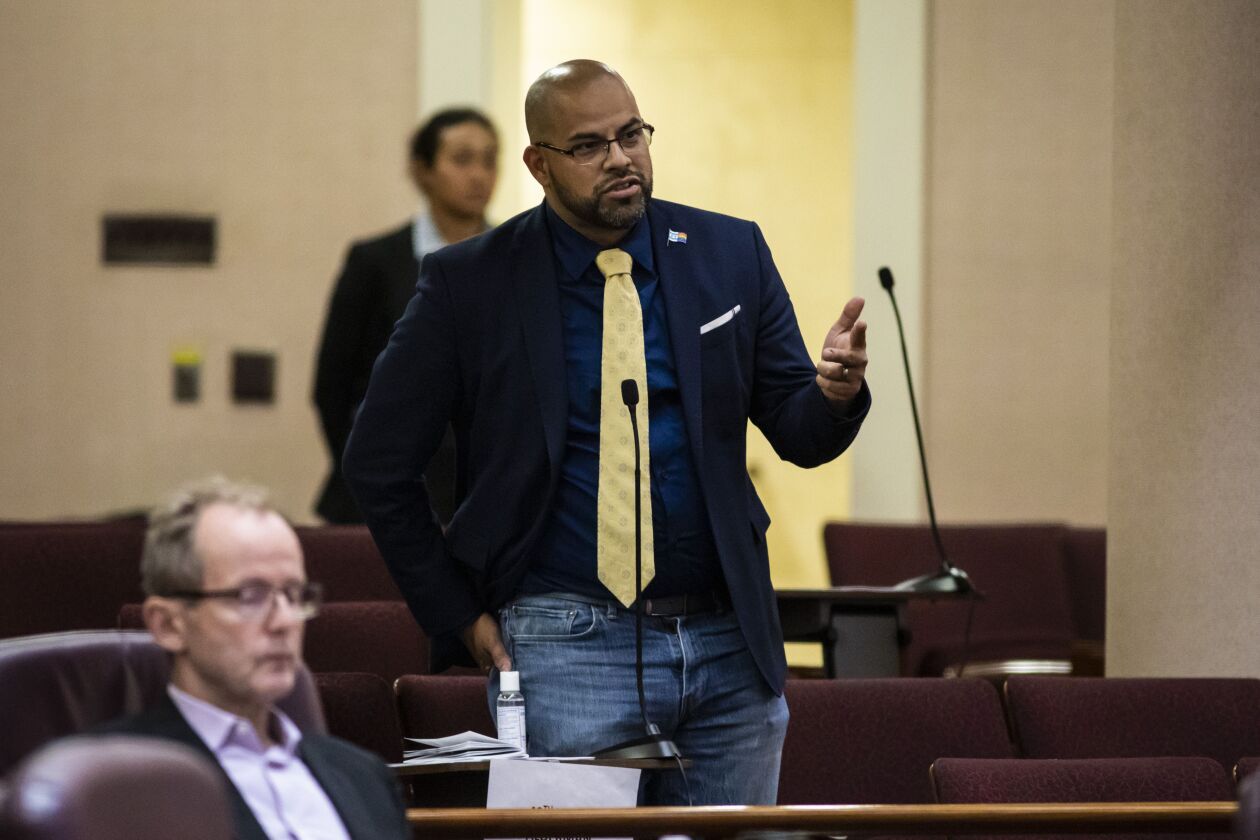Ald. Andre Vasquez (40th) used Chicago’s 311 non-emergency system to request a tree trim and was told the work would be done in fourteen days. A year later, he was still waiting. He got another email saying the same tree would be trimmed in fourteen days.
On Tuesday, the City Council’s Committee on Economic and Capital Development approved a Vasquez-sponsored ordinance aimed at minimizing that frustrating experience for everyday Chicagoans.
Instead of asking city departments like Streets and Sanitation, Water Management and Transportation to “come up with a number” about how long a service request might take, the city’s Department of Assets, Information and Services will base the response on actual data of how long it really takes to do the work.
The estimate given will be the average response time to similar requests.
And when a “311 ticket” is transferred from one city department to another, the constituent who made that service request will be told why and what happened. No longer will the service request be designated as “closed.”
Vasquez believes that Chicagoans are willing to accept almost anything if only they are told the truth. He argued that rampant frustration with 311 stems from being told, as he put it, “b.s.”
“I’ve worked customer service in retail for 20 years. People are much more frustrated when you don’t tell them the truth and try to give ‘em an excuse than when you actually them ‘em what’s going on and how it’s occurring. We owe that to the taxpayer that pays for all of this stuff,” Vasquez said.
“When they’re asking, ‘Why does this take so long?’ we can say, ‘Some of your funding — 40 percent of it is going to CPD [the Chicago Police Department]. But if some of that actually went to the other departments, you’d get better service.’”
But what about complaints that 311 calls take too long to answer, as highlighted in several stories by the Chicago Sun-Times?
“That’s something we haven’t heard that often about. But it’s something we can tackle. That would be a staffing issue based on the amount of folks they have to pick up calls,” Vasquez said.
Audrey Mathis, director of 311 Services, said issues like staffing and extreme weather can explain why a seemingly routine request can drag on for months or even a year.
“Rather than going with static data to make an assumption that it will take fourteen days —maybe two years ago, it was fourteen days. But through a number of factors, it now is 40 days or 35 days,” she said.
From now on, “It’s actually taking past performance of what is normally happening over the last year or the last six months to give a more accurate” estimate.
West Side Ald. Michael Scott Jr. (24th) noted that historic staffing shortages in the Bureau of Forestry make it difficult to pinpoint how long it’ll take to get a tree trimmed.
“If we have storms and they have go out and they have to pick up stuff on the North Side if there was a storm over there or in Garfield Park, that takes them away from their ordinary tree-trimming responsibilities,” he said.
“Will the departments update when that kind of stuff happens and extend that timeline?”
Mathis said city departments will be taken out of the equation altogether.
“The way it is now, they would have to say, ‘It’s no longer fourteen days. We believe it’s going to be 30 days.’ This new process will actually take on what’s been happening in the system and will give more of an accurate [picture]. On average, it’s really been taking 90 days or 100 days,” she said.
In 2015, a City Council rebellion forced then-Mayor Rahm Emanuel to shelve his controversial plan to privatize Chicago’s 311 non-emergency system.
Emanuel was forced to find another way to bankroll a sorely needed system upgrade after aldermen argued that services so pivotal to their residents must be provided by Chicagoans who know the city and its neighborhoods.
In 2018, City Hall finally flipped the switch on an overhaul that allowed Chicagoans to text their service requests, along with photographic evidence, and let the city text those same residents back to let them know when crews will do the work.
Now, the upgrade that Emanuel bragged would “revolutionize” how city services are delivered is in line for yet another round of improvements to provide more accurate information.






